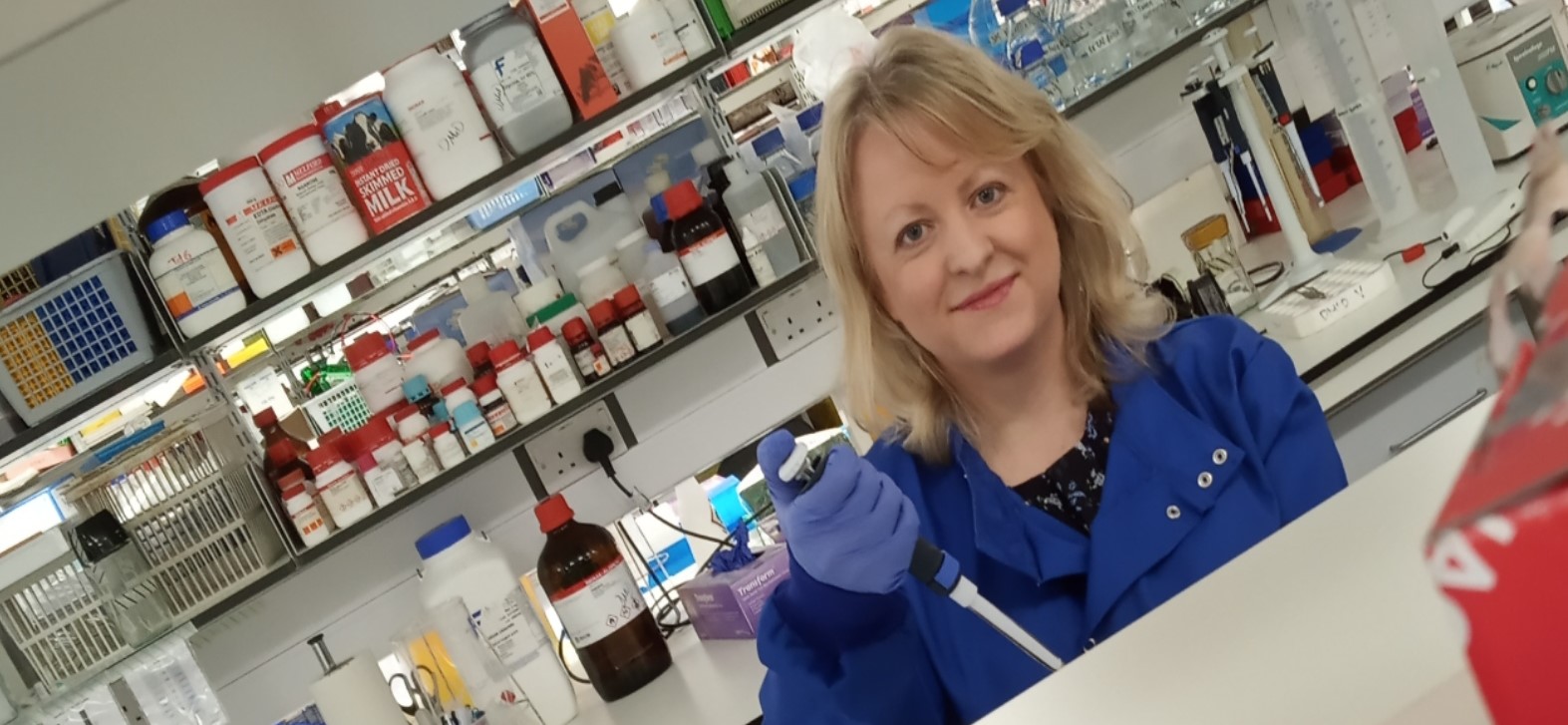QUEEN’S PROJECT TO PREVENT FAILURE OF BLOOD VESSEL GRAFTS RECEIVES HEART RESEARCH UK GRANT 
26 August 2020
A project at Queen’s which is aiming to develop a new method of making grafted blood vessels more resilient has been awarded a grant of over £145,000 by national charity Heart Research UK.
Coronary heart disease (CHD) occurs when one or more of the blood vessels that supplies the heart muscle with oxygen-rich blood becomes blocked. Untreated, this can lead to angina, heart attack and heart failure. CHD is the single biggest killer in the UK.
One of the current treatments is coronary artery bypass graft (CABG) surgery where a grafted blood vessel is used to bypass the blockage, restoring blood flow to the heart. Although CABG is very effective, over time the grafted blood vessel itself often becomes blocked.
There is evidence, however, that it is possible to alter the characteristics of blood vessels to make them more resilient, so that they are less prone to becoming blocked and failing.
The project, led by Dr Denise McDonald, Senior Lecturer from the Wellcome-Wolfson Institute for Experimental Medicine at Queen's, will use a range of laboratory models to test two key compounds that are important in in promoting resilience in grafted vessels.
Dr McDonald (pictured above) and her team will investigate the interaction between these chemicals in order to develop novel ways of protecting blood vessels from graft failure, with the aim of preventing vein graft failure and improving the success of CABG surgery for treating patients with CHD.
Acknowledging the support from Heart Research UK Dr McDonald said:
“This is an incredibly interesting area of study, one that could potentially have real and applicable benefits to patients.
“By increasing the resilience of grafted vessels, we will decrease the need for extra surgeries and procedures, easing the strain on our health service and reducing the amount of medical intervention a patient needs.
“We are very grateful to Heart Research UK for supporting this research.”
Kate Bratt-Farrar, Chief Executive of Heart Research UK, said:
“We are delighted to be supporting the work of Dr McDonald and her team, which has the potential to have a big impact on how effective we can be at treating people with CHD, which is still the nation’s single biggest killer.
“Our grants are all about helping patients. They aim to bring the latest developments to those who need them as soon as possible. Dr McDonald’s project promises to be able to bring about tangible improvements in patient care.
“The dedication we see from UK researchers is both encouraging and impressive, and we at Heart Research UK are proud to be part of it.”
The £145,214 grant was awarded to Queen’s as part of Heart Research UK’s annual awards for research into the prevention, treatment and cure of heart disease.
Last year, Heart Research UK awarded more than £1.6m in grants for medical research projects across the UK. To date, the charity has invested more than £27m in medical research via its grants programme.
To support health-related research projects at Queen’s, visit the Development and Alumni Relations Office website or contact Teresa Sloan, Head of Health Fundraising. Medical queries arising out of this news story should be raised directly with a GP/consultant and not with DARO staff.
Media enquiries should be addressed to the Communications Officer at Queen’s University Belfast.
Back to Main News
Top of Page